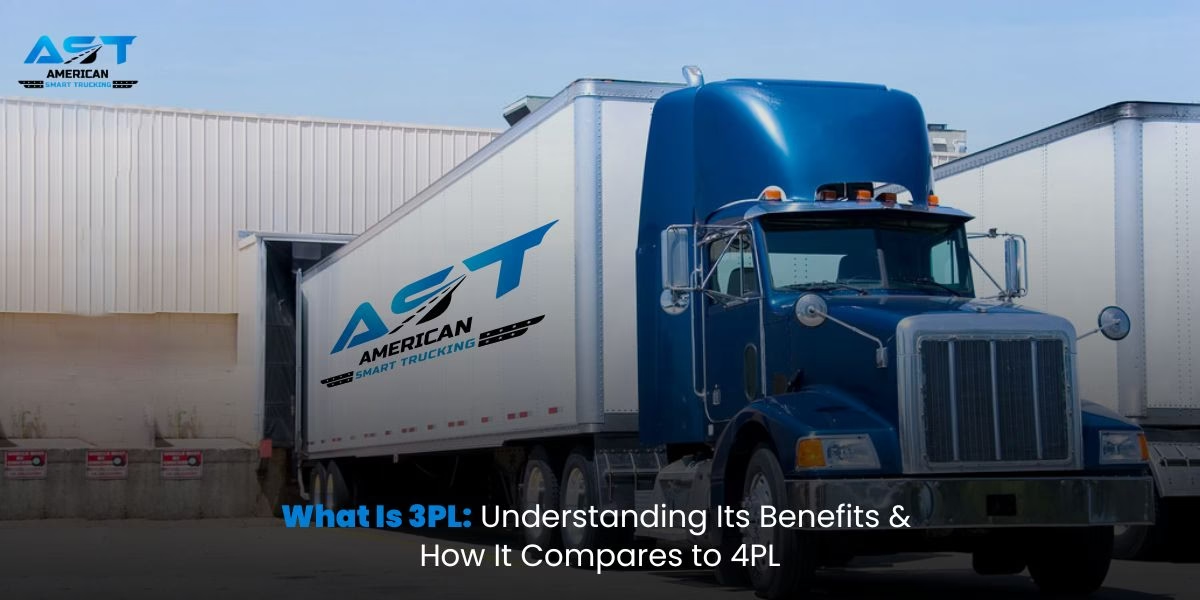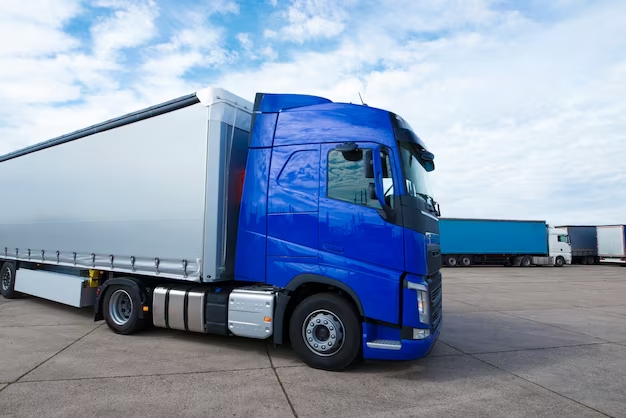What Is 3PL: Understanding Its Benefits & How It Compares to 4PL

In today’s business world, managing the movement of goods from one place to another is very important. As businesses grow, handling their logistics can become difficult and time-consuming. This is where companies, like Third-Party Logistics (3PL) and Fourth-Party Logistics (4PL) providers come in. These companies help businesses streamline and optimize their supply chain and stream.
3PL providers focus on specific tasks like storing goods, transporting them, and delivering orders to customers. On the other hand, 4PL providers play a bigger role by managing the entire supply chain, which includes coordinating with multiple 3PL providers.
Both 3PL and 4PL providers help businesses save time, reduce costs, and improve efficiency. However, understanding how they work and differ from each other is very crucial to choosing the right option for your business. Whether you’re running a small business or a freight dispatching company, this article will explain what 3PL is, its benefits, and how it compares to 4PL, so that you can make the best decision for your logistics needs.
What Is 3PL (Third-Party Logistics)?
Third-party logistics providers help businesses effectively manage their supply chain. These companies have expertise in a wide range of tasks, such as storing products, handling shipping, and managing returns.
For instance, instead of handling tasks like storage and delivery of products on their own, businesses can outsource them to a 3PL provider who has expertise in these services. This will help businesses focus on their core tasks while allowing the 3PL provider to handle the logistics.
Benefits Of Third-Party Logistics (3PL)
Third-party logistics (3PL) helps businesses save time and costs by taking care of important tasks like storing products, shipping, and managing inventory. Instead of handling these tasks themselves, businesses can collaborate with 3PL providers who already have the warehouses, trucks, and systems needed to do the job effectively. This helps them reduce operational expenses as businesses don’t have to invest in their own storage space or hire extra workers.
Even for a freight dispatching company, using a 3PL provider can ensure better resource allocation and faster delivery to customers. 3PL providers use advanced technology to track orders and manage inventory, which reduces mistakes and speeds up delivery times.

What Is 4PL (Fourth-Party Logistics)?
A four-party logistics (4PL) provider manages and coordinates the entire supply chain for a business. A 4PL provider acts as an integrator, which means they handle all aspects of logistics, including working with multiple 3PLs and other service providers. They focus on the bigger picture, helping businesses design and improve their supply chain strategies.
For a freight dispatching company, working with a 4PL provider can streamline complex logistics by outsourcing supply chain planning and oversight. 4PLs focus on planning and managing logistics, giving businesses more control and ensuring the entire supply chain runs smoothly.
Benefits of Fourth-Party Logistics (4PL)
Fourth-party logistics (4PL) make proper strategies to manage their supply chain. It handles everything from planning to execution, ensuring everything works smoothly. A 4PL acts as the single point of coordination among multiple 3PLs and service providers, which improves communication and reduces confusion.
With a focus on strategic planning, 4PL providers analyze data to optimize processes and cut costs. They also use advanced technology to track shipments, monitor inventory, and streamline operations. For businesses, including a freight dispatching company, 4PL services can provide scalability, allowing them to grow or expand into new markets while saving time and money.
Key Differences Between 3PL and 4PL
The main difference between 3PL and 4PL lies in the services they provide and the level of control they take. A 3PL focuses on specific tasks like storage, shipping, and managing inventory, which helps businesses with everyday logistics.
A 4PL, on the other hand, helps businesses manage the entire supply chain, including coordinating multiple 3PL providers to ensure everything works smoothly. While 3PL gives businesses more control over logistics tasks, 4PL takes care of everything, using technology to make sure all parts of the supply chain work together efficiently.
Conclusion
In conclusion, third-party logistics (3PL) has proven to be beneficial for businesses in so many ways. It manages their essential logistics, including storage, shipping, inventory management, and much more. 3PL helps companies run their logistics more efficiently and provides the expertise needed to handle these tasks smoothly.
On the other hand, Fourth-party logistics (4PL) goes a step further by managing the entire supply chain. It coordinates with different logistics providers, which includes 3PLs, to ensure seamless operations. For a freight dispatching company, choosing between 3PL and 4PL depends on their specific logistics needs. While 3PL is great for businesses that need help with specific logistics tasks, 4PL is better for companies that need complex logistics solutions. Both 3PL and 4PL offer valuable solutions, and businesses can decide after evaluating their goals and requirements.
Related posts
Recent Posts
Subscribe
Calendar
| M | T | W | T | F | S | S |
|---|---|---|---|---|---|---|
| 1 | ||||||
| 2 | 3 | 4 | 5 | 6 | 7 | 8 |
| 9 | 10 | 11 | 12 | 13 | 14 | 15 |
| 16 | 17 | 18 | 19 | 20 | 21 | 22 |
| 23 | 24 | 25 | 26 | 27 | 28 | |













